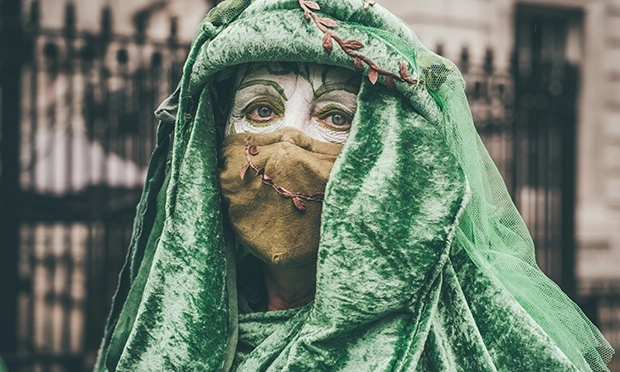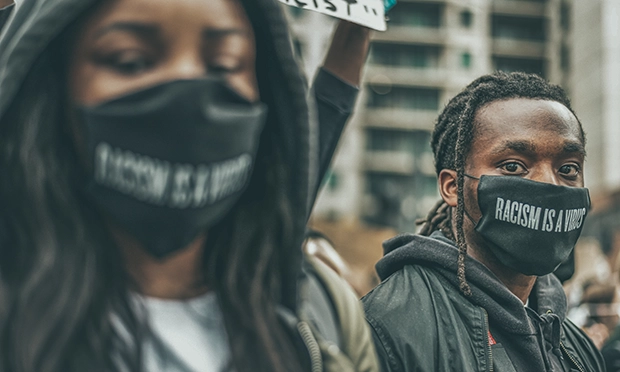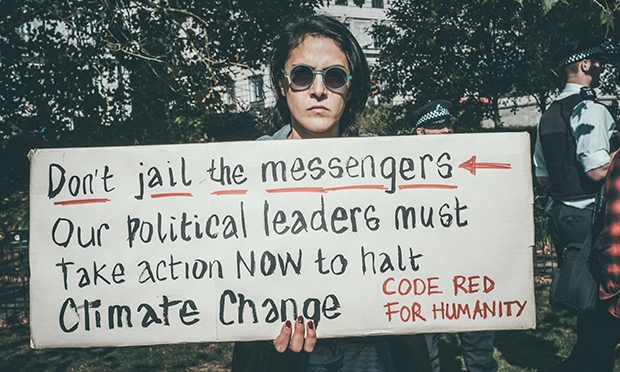‘So many people want change’: Free photography exhibition in Hackney captures years of protest across the UK

Photograph: Future Hackney
A powerful new photography series depicting some of Britain’s biggest protests and activism is on show in Hackney for free.
Protest Stories, by Donna Travis and Wayne Crichlow from art collective Future Hackney, captures movements including Black Lives Matter, Extinction Rebellion, Animal Rebellion, LGBTQ Lives Matter, Child Q protests and Just Stop Oil.
Emotion, frank messages on placards and acts of rebellion, like paint being poured from an oil canister, will make any passerby stop and think.
In one photo, a man holds a poster commemorating Black activists executed years ago. The individual personalities and aesthetics of protesters hit home, with solidarity in their desire for change.
Donna and Wayne have attended protests and interviewed people from the groups each week since 2019 to create the selection, which can be found outside on Mare Street. They also interviewed scientists to voice their knowledge on the climate catastrophe.
Donna said: “We needed to put something up because we felt as artists we had a responsibility to. Our mainstream media is not telling people what is going on, especially regarding the climate catastrophe. We are trying to show that so many people want change.”
The duo started the project by photographing Black Lives Matter protests, along with Extinction Rebellion and LGBTQ Lives Matter actions. But last year, the surge in protests by all manner of groups spurred them to extend it.

Photograph: Future Hackney
Donna said: “When this new wave of simultaneous protests happened across the city we felt it had to be photographed. There was no real discussion in the news around the actual demonstrations happening in central London all throughout summer and autumn. It was highly worrying.
We wanted to put the protests up together as one story.”
Donna has made documentary films for years and taught Film Studies at A-Level. She’s been an avid protester on various issues since the 1980s, from Rock Against Racism to helping shut down Smithfield meat market in 2019.
She was particularly moved by the young Extinction Rebellion and Just Stop Oil protesters she met.
“Working with young people and intergenerational groups across the capital, I felt such an urgency to this message. We are really focused on why the right-wing media are stopping their message getting out.”
Some of the young people Donna and Wayne worked with also helped with the photography and edits.
“Including young people’s voices was important,” Donna explained. “It’s amazing to work with them. They’re chanting, ‘We’d rather be arrested than dead’. They know that what’s coming is unthinkable and they’re willing to make a sacrifice. They are educated young people whose information is wider than the Daily Mail and the BBC. They’ve educated me.”

Photograph: Future Hackney
The young protesters said that looking back into history’s activism taught them that civil disobedience is the only successful way to incite political change, which explains some of the stunts covered by activists recently.
Donna said: “The Suffragettes, the civil rights movement – they were successful because of non-violent civil disobedience. The young people’s attitude is that if this was a war, we would all be out there fighting.”
Many of the scientists the Future Hackney duo spoke to complained that they are not given airtime to talk about the climate crisis, or have had their points edited out for being too controversial, or have simply been hurried by interviewers.
Donna said the exhibition is a response to amendments to the Public Order Bill, crafted by Home Secretary Suella Braverman, which gives police powers to crack down on noisy or disruptive protests. The bill has been labelled as draconian by many opposition MPs.
This April, Extinction Rebellion hopes that two million people will take to the streets to protest or cause civil unrest. The campaign’s research shows historically that this 3.5 per cent of the population is enough incite a government into making substantial changes.
While protests might be under threat, Donna thinks there’s hope for social change because of politicians like Zarah Sultana, growing numbers of activists on social media, coverage in the Guardian and Double Down News, and union figures such as Mick Lynch.
While Protest Stories is powerful and comprehensive, Donna believes there are more stories to tell. She plans to document activism from strikers and working people from the movement Britain is Broken. They want action on low pay, a general election and a repeal of anti-union laws.
She said: “There needs to be a cap on wealth. When working class people hoard, it’s seen as an illness. But when billionaires do it, it’s portrayed as inspiring.”
